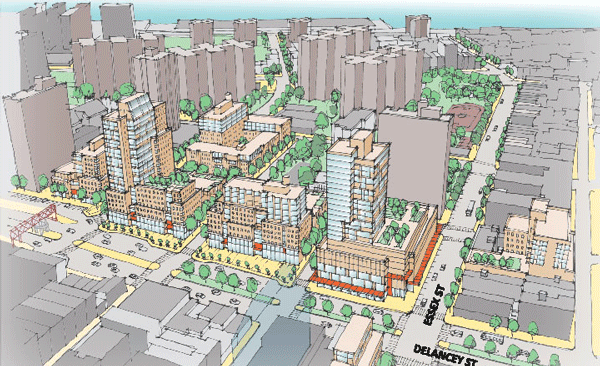BY AMY RUSSO | For the residents of Downtown Manhattan, the steadily climbing level of noise has been a torturous and ongoing issue that has plagued some communities for years. At a Community Board 2 Quality of Life Committee meeting on Mon., July 13, locals gathered to attest to the ear-pounding conditions with which they have been forced to cope.
Davide Gentile, a resident of University Place, reported that an HVAC noise problem there is now going into its sixth year.
“The noise floor continues to creep up in New York City…making my bedroom unlivable, abandoned,” he complained.
Indeed, Gentile claimed to have been so disturbed by the constant noise that he now is unable to sleep in his own bedroom and cannot make full use of his apartment. As a possible solution, he proposed the creation of a password-protected message board through which locals could exchange ideas and information about ways to lessen the noise generated by construction sites, bars and sidewalk cafes.
He suggested that various tips be posted, such as “how to schedule a D.E.P.” — Department of Environmental Protection — “reading for an opportune time” and how to successfully make an Environmental Control Board complaint. Gentile stated that community residents need to be “armed.” As for others in New York, he remarked, “Let the rest of the city figure it out for themselves, personally.”
Micki McGee, a West Soho resident since 1991, claimed that over the last three years, a total of six major construction sites have been introduced into her area, and that five are still currently active work sites. She attested to having spent “hundreds of hours on the phone and online” with various city agencies to try to find some relief from the noise.
McGee reported that one sound test of one loud construction site determined the noise to be 40 decibels, peaking at 49 decibels — a level seemingly low compared to what she has reportedly experienced. According to Industrial Noise Control, Inc., 40 decibels is equivalent to bird calls or a library, while 50 decibels is a quiet suburb.
“The system seems to be completely corrupt. This is not legal,” McGee declared.
“The issue is how law is written both at the S.L.A. level and at the city code level,” stated Robin Felsher, a member of the Mid-W. 10th St. Block Association, referring to the State Liquor Authority.
Felsher offered that legislative changes are the solution, but she also said she believes that elected officials are “pulled between the businesses that they represent and the residents that they represent — and therein lies the problem.”
She claimed that residents who wish to speak out are afraid to do so because they have allegedly been harassed and their leases threatened.
Committee Chairperson Robert Woodworth acknowledged the validity of the residents’ complaints. He described the general sentiment of those at the meeting as “agencies are unresponsive and the laws are badly written.”
David Moss, a representative of Councilmmember Corey Johnson, attended and suggested calls to Johnson’s legislative office. But he said that 311 should always be the first call. Sympathizing with the frustrated community members, he remarked, “It takes an extraordinary amount of time to get nowhere on these issues.”






































